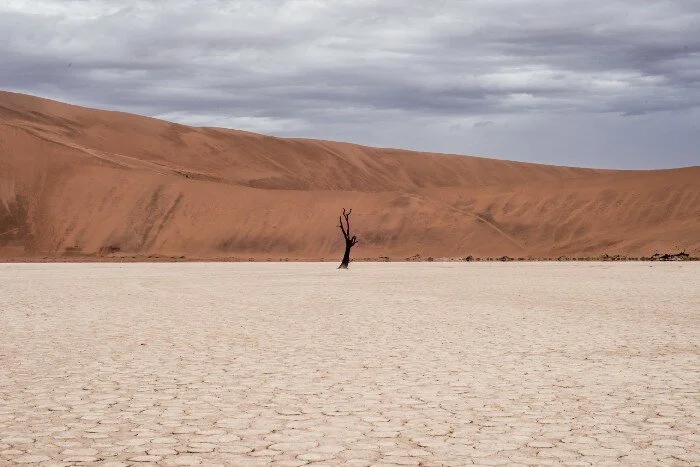Conchitas or Whatever They’re Called
He is home and I am here and I am sorry and I promise this time. This time this time este tiempo is forever. Para siempre. Please, I beg.
I call out the ingredients and he obeys, handing me each one that I need from the pantry tucked in the corner, but he never looks into the bowl. I’m mixing mixing mixing. The spoon’s getting away from me and the glassware is threatening to fly from the counter and orbit around my shoulder blades. I think maybe I am possessed by something. I taste the batter, I taste the batter, I taste the batter, but I can’t figure out what’s missing.
If anyone comes home from Tejas, they bring conchas. The round lumps of wispy dough are delivered tableside in a white paper bag and covered in sugar that melts down the back of your throat. There are brown ones like chocolate kisses and pink ones like his hungry lips, but I chose vanilla because it’s milky like my own skin.
Conchas are sweet bread, pan dulce, with a sugar coating on top that resembles a shell, hence the English translation of their name. They are cheap, often enjoyed for breakfast with coffee or Mexican hot chocolate. Conchas are not a dessert, he says: they are like a tradition, an important staple in Latin American countries. They are comfort food.
The bread is initially exciting, satisfying, when his family brings them home for us. I haven’t had one in a while. I grab greedily from the bowl and stuff a large bite in my mouth while his mom isn’t looking. The white sugar falls all over my clothing and her precious, swept floor. I glance over at her. She smiles and I’m surprised.
I have never been on a plane before in my life. In fact, I’ve never even been inside an airport. But I buy the ticket for $465 dollars for the plane that leaves at 7:15 the next morning. I calculate that I have approximately ten hours to call my job and tell them I won’t be there for a week, call my parents and tell them I’m leaving, call a friend and tell them I need a ride to the airport, call him and tell him I’m coming. I pack my bags around 3:30 AM. I still don’t know what I’m doing.
My concha is hard. It’s stale. And I don’t like it anymore, but I keep eating it anyway. I throw one third of it out the window as we drive and I don’t think he notices, but I don’t care if he does.
My grandma says, “We love him like our own family.” His sister says, “You’re my favoritecuñada” and I’m too nervous to ask for translation. His dad says, “Nuestra casa estu casa.” I know he means it.
I am on the wrong loveseat. Everyone is trying to hide their shifty eyes behind warm, kind smiles, but really they are just whispering when I turn around and wondering when I arrived and who I am and who changed the plans.
Neither his mother (nor my mother) ever smiles at me. Neither his mother (nor my mother) has a job outside the home. Her job is to clean, to cook, to take care of the family. My mother’s job is to slowly melt into the loveseat.
I arrive in his hometown, and I look around and I understand why he loves it here. I tell him, “We will move here one day.” I tell him, “I’ll drop out of school; let’s do it now.” I know I mean it.Everything feels rustic, brown, wild wild west. We drive down a straight, flat street like a floured-up baking sheet in the new, dusty, desert territory and there are tiendas enclosing us on all sides, in rows lined like an old school theater set. Their names are all Spanish, all ending in –ería, and I strive to make my tongue roll my r’s like the Mexicans do. Rrrrr. My thoughts race along an untraveled tract; my hair bounces with each step.
I see four white people in one week’s time and I wonder if they are even Caucasian or if the hot, Texas sun just hasn’t settled in on their skin yet.
I observe my grandmaas she’s making her sugar cookies, perched on top of the wooden counter top, peering in the bowl like a button-eyed rag doll. They are almost all sugar — and she’s pouring in more and more and more. She has her electric mixer on the counter and I hear it twirl to life like a tiny ballerina on a music box, whirling the granulated stuff into a slippery consistency. She uses no recipe. Her hands don’t look as frail and wrinkled as she whips. They are sure.
He pronounces the name of a blue, cardboard cutout storefront lying gently to our left side. His rrrr rolls down and off his tongue and I can’t stop chasing it.
The bowl of freshly baked sugar cakes is attached to my right hand and my left one is mechanic and my mouth is permanently open upright into the sky like a baby bird begging to be fed. Fat hangs off my hips, but the cravings are relentless.
The conchas are not as good as they once were, way back when.
I am sitting on his couch waiting to leave. Spanish buzzes over my head and I want to swat at it. I’m not focused enough to interperet. I ask him if there are “conchitas or whatever they’re called” and he laughs at me warmly and stands up to bring me one from on top of the microwave. I glare at them, sitting there in the same giant red Tupperware. Sealed to keep the air out, trying to keep the fresh locked in. Theyalways crumble anyway. I don’t know why they don’t keep pieces of white bread in the bowl like my grandma does to “keep them soft, Beth!”
The conchas are not her sugar cookies.
Patty Cake, Patty Cake,
Baker’s Man;
That I will Master,
As fast as I can;
Prick it and prick it,
And mark it with a B,
And there will be enough for Baby and me.
His abuelita is dying on the bed beside us. I picture her making tamales in a kitchen all closed in like a cupboard or pounding masa on a tree stump in their patch of backyard, all sweating and hurried. I see her selling crunchy packs of Cheetos and galletas from the back room of her garage, the neighborhood corner stop. I ask if she ever made conchas. She asks who the white girl is sitting over there and everyone laughs. I smile because I can’t understand her slurred, sick Spanish accent.
I wonder who the white girl is sitting over there.
My eyes dart to his and I grab his arm like I’m expecting to lose it. “What are these cookies missing? What is it?” He asks me if she puts sugar in them. I glance over at my aging grandma.
My mother says, “No, don’t give up. Don’t be like me.” And I feel her honesty drape around my shoulder blades like a heavy cloak or a rolled-out, under-cooked piece of dough, but I don’t have the energy to stand there and hold it. Don’t be like me, she says. Don’t give up like I did. I look at her, standing at the sink scrubbing dishes and I want to crush them all up in piles of powdered sugar and fill the kitchen all the way to our knees. I shut the fridge.
I am sitting in the nursing home on the loveseat with Tio Manuel. He is speaking to me in Spanish and I am urging my brain to comprehend, but the Mexicans speak too quickly. He’s the only one that believes that I’m there for the right reasons, the only one that believes that I understand his language. I picture him and me dancing. I picture stomping and scattered feet. I want to tell him that he doesn’t know me.
I wake up in a room that does not feel like my own, butI am at my house (or his). I dodge from threshold to threshold, peeping through the cracks for watching eyes, hoping no one notices. I wonder if home is maybe just the skin that I’m in.
I do not belong anywhere I go anymore.
There is a panadería up the street and we stop there on our way back to the airport. Inside are three glowing glass cases full of pan dulce in its freshly-baked, un-suitcased form. The bakery is small and crowded and I order in Spanish and it feels like his kitchen. When I get back from Texas, I will lay a wrinkled, white bag of conchas on my parent’s kitchen table and they’ll try them with little enthusiasm and I’ll wonder why I even thought to bring some home in the first place.
I’m off the airplane and into his life again. I have pictured each reunion. I know we will melt together quickly; I’m sugar on his ragged tongue and he’s gobbled up in handfuls in one sitting. The curtain closes. The storefront set collapses and slaps against the wooden stage.
His gramma dies and I know he wishes that he were home.
I ask my taxi driver in worn-down Spanish how long before the conchitas in my suitcase dry up in this heat. But he just turns the cumbia up on the radio real loud, as if to avoid laughter at my absurdity.
They are just sweet bread.
I keep searching. Each stretch of land brings hope, but it never feels like a place I should unpack my clothes. I tell myself that I’ll know when I know, but I’m starting to wonder. The only thing I’m really sure of is that he’s all the home I’ve ever understood.
I am sitting in his kitchen dipping a soft, fresh concha into a cup of Nescafé. His mother is running a rag over the same spots on the counter. She is making things clean. My mother is in her pajamas or her track suit at home on the loveseat. She is not in love with anything.
I lock myself in my room and wonder what it all means. The grape vines that wrapped around the crisscrossed wicker walls of our deck were gone. The apple tree. The peach tree. The pear tree. Gone. The green ivory that snaked the mailbox post. Gone. And the family that lived there, you and me, we were gone, too.

